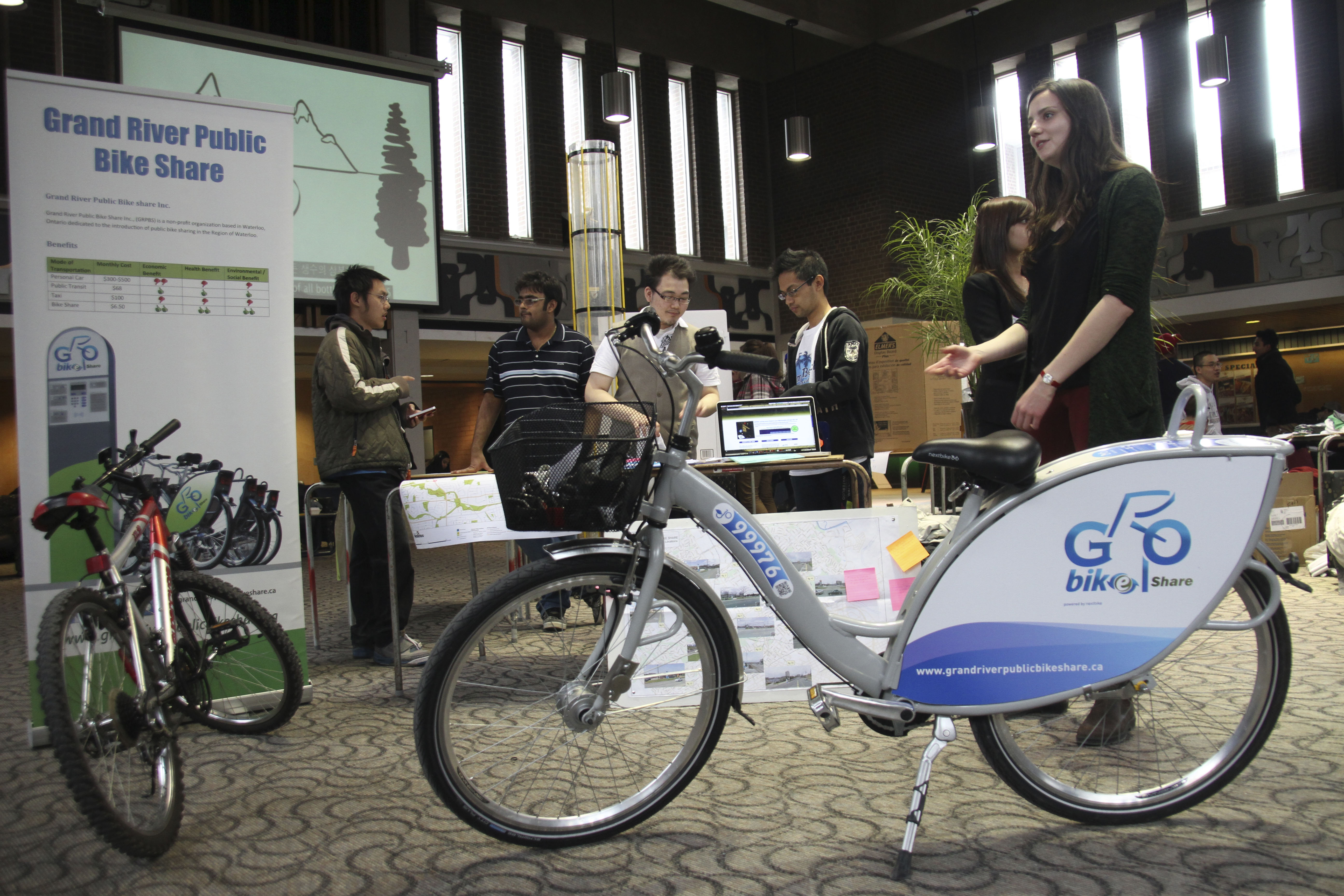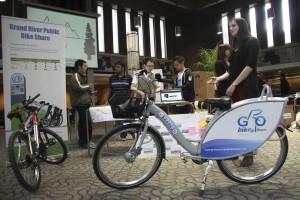Bike Share program gets green light from City Council


A public bike share program approved by Waterloo City Council is set to take motion in November. This initiative, known as the Grand River Public Bike Share (GRPBS), aims to provide bicycles at four stations within Waterloo’s core and university areas.
“This is a non-profit group who is looking to implement a public bike share in Waterloo without direct cost to the local municipal government,” said Waterloo City councillor Jeff Henry of Ward 6.
GRPBS board member David Moylan said that the city is “looking to get a series of bikes into the community here in Waterloo with the idea that it is a bike share system similar to what you’d see in Toronto, Ottawa or Montreal where the idea is that the bikes are in close proximity and you would take them out for short trips.” Moylan continued,“We think that the GRPBS is going to really add a lot of flexibility to travel options — especially with students.”
Henry, however, noted that the limited cost to local administrations is the main selling point for the new system.
“Council got the assurances that it needed in terms of limiting our cost exposure and so it was really a win-win,” he said. “There’s no downside for the city and only an upside for the community.”
Despite the fact that the city will not be paying for the program there may be some peripheral expenses.
“Any cost we incurred throughout the negotiations for this would be borne by Grand River Public Bike Share.We’ve also secured that any stations put on city land will have a deposit for those that would allow us to remove them in the event that they weren’t successful.”
“That means we would have no cost that’s coming back to us,” said Henry.
Moylan also foresees three models of revenue stream. For the casual rider, Moylan said that “the model we’re proposing right now in that format would be a dollar per half hour up to four hours and once you get to four hours there would be a daily charge.”
For the monthly membership, the number that is being looked at currently is a $12 monthly membership fee. This would be used within a four-hour range at no additional charges.
Overall, there would be an annual membership of $20. “And then they pay a reduced half hour fee as they move through those initial four hours per trip,” Moylan added. “When they exceed those four hours there would be a $15 charge.”
As this is not a publically funded project the need for sponsors is essential to its success.
“That’s our next step,” Moylan concluded.
“Go back to private businesses, corporations and institutions and see how we will be received to get our initial start-up funding to actually bring the infrastructure.”

